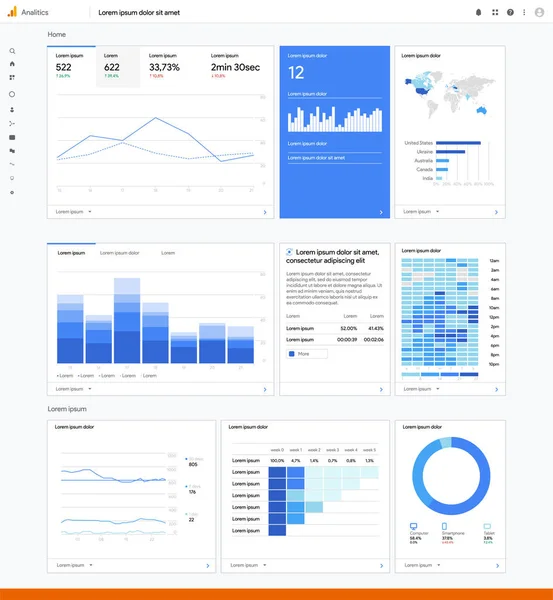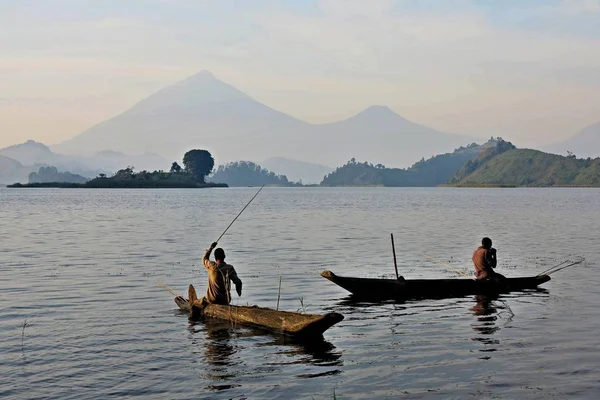Are you searching for the most profitable business ideas to Invest in the Democratic Republic of Cong? With over 90 million people and a GDP exceeding $50 billion, DRC represents one of Africa’s most dynamic emerging markets. While mining dominates with 90% of export revenue, this creates diversification opportunities across energy, agriculture, and digital services.
The country’s challenges reveal its greatest business potential. Only 34% have electricity access, agriculture employs 65% of workers but contributes just 27% to GDP, and over 20 million internet users drive digital transformation. These gaps create fertile ground for innovative solutions that address local needs while tapping global markets.
Research suggests that businesses leveraging the DRC’s natural resources, addressing food security, and tapping into global trends like sustainability and digital transformation are likely to succeed. It seems likely that the growing demand for tech solutions and eco-friendly services will drive innovation, with evidence leaning toward opportunities in mining, renewable energy, and agriculture. These ideas not only solve local problems but also align with international market demands, offering scalability and impact.
Table of Contents
- Summary of Best Business Ideas in DRC
- 1. Lithium Mining and Processing
- 2. Hydropower Development
- 3. Solar Energy Solutions
- 4. Cassava Processing
- 5. Fruit Juice and Jam Manufacturing
- 6. Furniture Manufacturing
- 7. Online Advertising Agency
- 8. Real Estate Development
- 9. Consulting Services
- 10. Travel Agency Specializing in Eco-Tourism
- 11. IT Support and Services
- 12. Fitness, Health and Wellness
- 13. Florist Business
- 14. Restaurant Business
- 15. Photography & Videography Business
- 16. Fruit and Beverage Business
- 17. Timber Business
- 18. Mining Support Services
- 19. Retail and E-commerce
- 20. Education and Training Centers
- Strategic Considerations for Success
Summary of Best Business Ideas in DRC
| Idea | Concept | Uniqueness Factor | Market Potential (2025) | How to Start |
|---|---|---|---|---|
| Lithium Mining and Processing | Extract and process lithium from reserves like Manono mine for battery production. | Leverages DRC’s 6.64M tons lithium, global demand for EVs. | Global lithium market to reach $28B, DRC key player. | Secure mining rights, invest in processing, partner with battery manufacturers. |
| Hydropower Development | Develop small to medium hydropower projects for rural electrification. | Untapped 100,000 MW potential, more than half Africa’s total. | Only 34% have electricity, massive rural demand. | Identify river sites, secure approvals, partner with communities for projects. |
| Solar Energy Solutions | Provide solar panels for homes, businesses, public facilities. | Addresses energy gap, sustainable, rural focus. | African solar market to reach $223B by 2026. | Import/manufacture kits, train technicians, offer financing for low-income users. |
| Cassava Processing Plant | Produce starch, flour, chips, ethanol from cassava for local, export markets. | Staple crop, high demand for processed products. | Global cassava starch market to reach $10B by 2027. | Set up near Yamba, source from farmers, target local/export markets. |
| Fruit Juice and Jam Manufacturing | Process mango, orange, pineapple into juices, jams for consumption, export. | Utilizes abundant fruits, meets healthy food demand. | Global fruit spreads market growing at 5% CAGR. | Establish unit, source fruits, package for supermarkets, explore exports. |
| Furniture Manufacturing | Produce furniture using sustainable timber from DRC’s >13M ha forests. | Eco-friendly, leverages forestry, global demand. | Global furniture market to reach $800B by 2025. | Set up factory, ensure sustainability, target local/international markets. |
| Online Advertising Agency | Help local businesses with digital marketing, SEO, social media. | Growing digital economy, 20M internet users, SMEs need expertise. | Global digital ad market to reach $786B by 2026. | Develop portfolio, target SMEs, offer affordable packages, market online. |
| Real Estate Development | Develop affordable housing, commercial properties in urban areas. | Urbanization at 37%, green materials focus. | Growing urban population, housing shortage. | Partner with investors, use bamboo, focus on middle-income housing. |
| Consulting Services | Offer business setup, market research, legal compliance strategies. | Navigates complex business environment for entrepreneurs. | SMEs significant, lack guidance, economic growth. | Build expert team, offer workshops, target startups, foreign investors. |
| Travel Agency Specializing in Eco-Tourism | Promote sustainable tours in national parks, cultural sites like Virunga. | Focuses on conservation, lesser-explored areas. | Tourism 5.7% GDP, eco-tourism gaining traction. | Partner with parks, develop packages, market to adventure travelers. |
| IT Support and Services | Provide software development, cybersecurity, technical support to businesses. | Growing telecom sector, businesses lack IT infrastructure. | Global IT services market to reach $1T by 2025. | Set up urban center, offer cloud solutions, train local talent. |
| Fitness Equipment Manufacturing | Produce gym equipment, accessories for health and wellness market. | Combines manufacturing with global health trend. | Global fitness equipment market to reach $15B by 2027. | Invest in facilities, focus on quality, target gyms, urban centers. |
| Florist Business | Supply fresh flowers for events, hotels, potential export. | Leverages tropical climate for year-round production. | Global cut flower market worth $35B, exotic demand. | Establish greenhouses, partner with farmers, explore export opportunities. |
| Restaurant Business | Open restaurants blending local Congolese, international cuisines. | Cultural authenticity, targets expatriates, tourists. | Hospitality sector growing, diverse dining demand. | Choose prime location, hire local chefs, market through social media. |
| Photography Business | Offer professional services for events, portraits, commercial use. | Captures vibrant culture, landscapes, global appeal. | Global photography services market worth $100B. | Build portfolio, invest in equipment, market via social media, local networks. |
| Fruit and Beverage Business | Produce smoothies, carbonated drinks, alcoholic beverages from local fruits. | Expands beverage options, leverages fruit abundance. | Global non-alcoholic beverages market to reach $1.5T by 2027. | Set up facility, source fruits, distribute through supermarkets, cafes. |
| Timber Business | Engage in sustainable forestry, timber processing for local, export markets. | Focuses on sustainability, resource-rich sector. | Global timber market worth $400B, eco-demand growing. | Obtain certifications, invest in processing, target eco-conscious buyers. |
| Mining Support Services | Provide exploration, logistics, equipment rental for mining industry. | Supports mining without direct extraction, ancillary services. | Mining 90% exports, high demand for services. | Partner with mining firms, invest in equipment, offer competitive pricing. |
| Retail and E-commerce | Set up online stores selling local artisanal products, imported goods. | Connects producers to global markets, promotes crafts. | Global e-commerce market to reach $6.5T by 2025. | Develop website, partner with artisans, handle logistics for domestic/international. |
| Education and Training Centers | Establish vocational schools, online courses in IT, renewable energy, entrepreneurship. | Addresses skills gap, prepares for future industries. | Global vocational training market worth $300B, Africa growth. | Develop curricula, partner with employers, offer scholarships, attract students. |
1. Lithium Mining and Processing
The DRC’s 6.64 million tons of lithium reserves position it as a game-changer in the global battery supply chain. The Manono mine alone contains enough lithium to supply manufacturers for decades, while the global lithium market approaches $28 billion by 2027. Unlike traditional mining exporters, the DRC can capture higher margins through processing facilities that produce battery-grade lithium carbonate.
Read Next: 20 Unique Business ideas in Kenya that never fail
Starting requires $50-200 million capital and securing mining rights through the Ministry of Mines, which has streamlined processes for foreign investment. Success depends on establishing offtake agreements with battery manufacturers like Tesla or CATL, while processing facilities can achieve 40-60% margins versus 15-20% for raw ore exports.
Environmental and social governance considerations are paramount, requiring water recycling systems, ecological protection, and meaningful community development. The most successful ventures adopt international ESG standards from the outset, ensuring sustainable long-term operations that benefit local communities.
2. Hydropower Development
The Congo River system holds 100,000 megawatts of hydroelectric potential, representing half of Africa’s total capacity, yet only 2,500 megawatts are currently generated. Small to medium-scale projects of 1-50 megawatts offer immediate opportunities for rural electrification, mining operations, and agricultural processing where grid extension is economically unfeasible.
Development begins with hydrological studies to identify optimal sites with consistent flow and minimal environmental impact. The Ministry of Energy offers feed-in tariffs and power purchase agreements making projects financially viable, with payback periods of 7-12 years depending on local conditions and government incentives.
Community engagement ensures long-term success through local stakeholder involvement, employment opportunities, and development components like schools or health clinics. Financing typically combines development finance institutions, commercial banks, and equity investors, with organizations like the African Development Bank actively supporting projects with strong environmental and social credentials.
3. Solar Energy Solutions
With 66% lacking reliable electricity and solar irradiance averaging 4.5-6.5 kWh per square meter daily, the DRC is ideal for solar solutions. The African solar market approaches $223 billion by 2026, spanning from residential solar home systems to commercial installations serving businesses, schools, and healthcare facilities.
Solar home systems address rural families relying on expensive kerosene lamps, with modern kits including LED lights and phone charging transforming household economics. Commercial installations offer higher margins, with businesses achieving 30-50% cost savings through solar-plus-storage systems compared to unreliable grid electricity and expensive diesel generators.
Success requires market segmentation and appropriate technology selection, with residential markets demanding robust systems and strong after-sales support, while commercial markets need sophisticated designs with energy management capabilities. Training local technicians creates valuable employment while ensuring long-term sustainability and better customer acceptance.
4. Cassava Processing
Cassava, consumed by over 70% of the population, remains largely unprocessed despite the global cassava starch market reaching $10 billion by 2027. Year-round tropical production provides consistent raw materials for starch, flour, chips, ethanol, and biodegradable plastics, addressing food security while creating export opportunities.
A medium-scale facility processing 50 tons of fresh cassava daily produces 10-12 tons of high-quality starch, generating $8,000-12,000 daily revenue. Success requires building relationships with smallholder farmers through cooperatives, providing technical support for improved varieties, and ensuring consistent quality and quantity of raw materials.
Profitability maximizes entire cassava root utilization, with peels processed into animal feed and liquid waste converted to biogas. This integrated approach improves project economics while minimizing environmental impact, creating sustainable value chains that benefit farmers, processors, and end markets.
5. Fruit Juice and Jam Manufacturing
The DRC’s tropical climate produces abundant mangoes, oranges, pineapples, and exotic fruits year-round, yet most spoil due to lack of processing facilities. The global fruit spreads market grows at 5% annually, while processed fruit juices meet increasing demand for healthy beverages in both domestic and export markets.
Processing facilities can reduce post-harvest losses by 40% while creating premium products for supermarkets, hotels, and export markets. Modern equipment ensures consistent quality, extended shelf life, and food safety standards required for international markets, with proper packaging enabling regional exports to neighboring countries.
Success depends on establishing reliable fruit supply chains through farmer cooperatives, implementing quality control systems, and developing brands that resonate with health-conscious consumers. Strategic partnerships with supermarket chains and food service providers ensure market access and sustainable revenue growth.
6. Furniture Manufacturing
The DRC’s 13 million hectares of forests provide sustainable timber resources for furniture manufacturing, while the global furniture market approaches $800 billion by 2025. Growing middle-class demand for quality furniture, combined with international appetite for eco-friendly products, creates opportunities for both domestic and export markets.
Sustainable forestry practices ensure long-term resource availability while meeting international certification standards like FSC that command premium prices. Modern manufacturing techniques produce high-quality furniture comparable to international standards, while lower labor costs provide competitive advantages in regional and global markets.
Success requires investment in modern equipment, skilled craftspeople, and sustainable supply chains that protect forest resources. Partnerships with international buyers and certification bodies ensure market access, while strong design capabilities differentiate products in competitive furniture markets.
7. Online Advertising Agency
With over 20 million internet users and growing digital adoption, local businesses need professional digital marketing services to reach customers online. The global digital advertising market approaches $786 billion by 2026, while Congolese SMEs lack expertise in SEO, social media marketing, and online advertising strategies.
Most businesses rely on traditional marketing methods despite their customers increasingly consuming digital content. An online advertising agency can help restaurants, retailers, and service providers reach target audiences through Facebook, Google, and emerging platforms, measuring results and optimizing campaigns for maximum return on investment.
Starting requires building a portfolio of successful campaigns, understanding local market dynamics, and offering affordable packages suitable for SME budgets. Success depends on demonstrating clear value through increased sales and customer engagement, while training local talent ensures sustainable growth and market expansion.
8. Real Estate Development
Urbanization reaches 37% and continues growing, creating demand for affordable housing and commercial properties in major cities like Kinshasa and Lubumbashi. The housing shortage affects middle-income families who need quality accommodation but cannot afford luxury developments, while commercial spaces serve growing businesses and retail operations.
Green building materials like bamboo and locally-sourced timber reduce construction costs while meeting environmental standards. Affordable housing projects targeting middle-income families can achieve attractive returns while addressing critical social needs, supported by government initiatives promoting urban development.
Success requires partnerships with local investors, understanding regulatory requirements, and designing properties that meet local needs and preferences. Focus on sustainable materials and energy-efficient designs appeals to environmentally conscious buyers while reducing long-term operating costs for residents and businesses.
9. Consulting Services
The DRC’s complex regulatory environment creates demand for business and management consulting services helping entrepreneurs navigate business registration, compliance requirements, and market entry strategies. SMEs and foreign investors need guidance on legal frameworks, tax obligations, and operational best practices to establish successful ventures.
Business setup procedures, market research, and strategic planning services address critical gaps in local business support infrastructure. Consultants with deep local knowledge and international experience can bridge cultural and regulatory challenges, helping clients avoid costly mistakes while accelerating business development.
Building expertise requires assembling teams with legal, financial, and operational knowledge, offering workshops and training programs, and developing relationships with government agencies. Success depends on demonstrating value through client success stories while building reputation for reliable, practical advice that produces results.
10. Travel Agency Specializing in Eco-Tourism
Tourism contributes 5.7% to GDP with significant growth potential driven by attractions like Virunga National Park, mountain gorillas, and unique cultural experiences. Eco-tourism gains global traction as travelers seek authentic, sustainable experiences that benefit local communities while protecting natural resources.
The DRC offers adventure experiences unavailable elsewhere, from gorilla trekking to exploring pristine rainforests and engaging with diverse cultural communities. Sustainable tourism models ensure conservation funding while providing employment and development opportunities for rural communities dependent on natural resources.
Success requires partnerships with national parks, developing comprehensive tour packages, and marketing to international adventure travelers through digital channels. Building relationships with international tour operators and travel agencies expands market reach while maintaining focus on sustainability and authentic experiences.
11. IT Support and Services

Growing telecommunications infrastructure creates demand for IT support services as businesses adopt digital technologies but lack technical expertise. The global IT services market reaches $1 trillion by 2025, while Congolese businesses need software development, cybersecurity, and technical support to compete effectively.
Cloud solutions, cybersecurity services, and software development address critical gaps in local IT infrastructure. Businesses transitioning from manual processes to digital systems need guidance, training, and ongoing support to maximize technology investments while ensuring data security and operational efficiency.
Establishing urban service centers, training local talent, and offering scalable solutions suitable for SME budgets creates sustainable competitive advantages. Success depends on building reputation for reliable service, staying current with technology trends, and developing long-term client relationships through exceptional support.
12. Fitness, Health and Wellness
The global fitness equipment market approaches $15 billion by 2027, while growing health consciousness creates local demand for gym equipment and accessories. Urban centers see increasing fitness club development, while individuals invest in home fitness solutions, creating opportunities for both commercial and consumer equipment manufacturing.
Local manufacturing reduces import costs and delivery times while creating employment opportunities. Focus on durable, locally-appropriate equipment serves both professional gyms and home users, with potential for regional exports to neighboring countries with similar market conditions.
Investment in modern manufacturing facilities, quality control systems, and skilled workforce ensures competitive products. Partnerships with fitness centers and retailers provide market access, while strong after-sales service builds customer loyalty and reputation for reliability.
13. Florist Business
Year-round tropical climate enables flower production for local events, hotels, and potential export markets. The global cut flower market exceeds $35 billion, with demand for exotic tropical flowers growing in international markets seeking unique varieties unavailable in traditional producing regions.
Local events, weddings, and hospitality sector create consistent demand for fresh flowers, while greenhouse facilities can produce high-quality blooms meeting international standards. Proper post-harvest handling and cold chain logistics enable export opportunities to regional and international markets.
Establishing greenhouses, partnering with local flower farmers, and developing relationships with event planners and hotels ensures market access. Export development requires understanding international quality standards, logistics requirements, and building relationships with flower importers and distributors.
14. Restaurant Business
The hospitality sector grows with urbanization, tourism, and rising incomes, creating demand for diverse dining experiences. Restaurants blending traditional Congolese cuisine with international flavors appeal to locals, expatriates, and tourists seeking authentic cultural experiences alongside familiar international options.
Kinshasa and other urban centers have growing middle-class populations with disposable income for dining out, while the expatriate community and tourism sector provide additional customer segments. Authentic local cuisine combined with international standards creates differentiated positioning in competitive restaurant markets.
Success requires prime locations, skilled local chefs, and effective marketing through social media and local networks. Understanding local tastes while maintaining food safety and service standards ensures customer satisfaction and repeat business essential for restaurant profitability.
15. Photography & Videography Business
The DRC’s vibrant culture, stunning landscapes, and growing event industry create demand for professional photography services. The global photography services market exceeds $100 billion, while local businesses need commercial photography for marketing, and individuals want professional portraits and event coverage.
Wedding photography, corporate events, and commercial photography for businesses provide steady revenue streams, while artistic photography showcasing Congolese culture and landscapes appeals to international markets through stock photography and art sales.
Building a professional portfolio, investing in quality equipment, and marketing through social media and local networks establishes market presence. Success depends on technical skills, creative vision, and understanding client needs while building reputation for reliability and artistic quality.
16. Fruit and Beverage Business
Abundant local fruits enable production of smoothies, carbonated drinks, and alcoholic beverages meeting growing demand for natural, healthy alternatives to imported products. The global non-alcoholic beverage market approaches $1.5 trillion by 2027, while local production reduces costs and provides fresher products.
Processing facilities can create unique flavors using local fruits like baobab, marula, and traditional varieties unavailable elsewhere. Modern bottling and packaging equipment ensures product safety and shelf life suitable for supermarket distribution, while unique flavors differentiate products from international competitors.
Establishing processing facilities, sourcing consistent fruit supplies, and developing distribution networks through supermarkets and cafes creates market presence. Branding and marketing emphasizing natural ingredients and local heritage appeals to health-conscious consumers seeking authentic alternatives.
17. Timber Business
Sustainable forestry practices can generate revenue while protecting the DRC’s vast forest resources for future generations. The global timber market exceeds $400 billion, with growing demand for certified sustainable wood products from environmentally conscious consumers and businesses.
Forest management plans ensure long-term sustainability while providing employment for rural communities dependent on forest resources. Value-added processing creates higher margins than raw log exports, while certification through FSC or similar programs commands premium prices in international markets.
Obtaining proper certifications, investing in processing equipment, and building relationships with international buyers ensures market access. Success requires balancing economic returns with environmental protection and community development, creating sustainable business models that benefit all stakeholders.
18. Mining Support Services
The mining sector’s dominance creates demand for support services including exploration, logistics, equipment rental, and technical services. Rather than direct mining investment, support services require lower capital while serving multiple mining companies and projects throughout their lifecycle.
Geological surveys, equipment maintenance, transportation services, and technical consulting address critical needs in the mining supply chain. These services generate steady revenues with lower risk than direct mining operations while requiring specialized expertise and reliable service delivery.
Building relationships with mining companies, investing in specialized equipment and expertise, and maintaining competitive pricing ensures market share. Success depends on technical competence, reliability, and understanding the unique challenges of operating in the DRC’s mining environment.
19. Retail and E-commerce
Online retail platforms can connect local artisans and producers with domestic and international customers, promoting traditional crafts while expanding market access. The global e-commerce market approaches $6.5 trillion by 2025, while local artisans lack platforms to reach broader audiences.
E-commerce platforms showcasing Congolese art, crafts, and products appeal to diaspora communities and international customers seeking authentic African products. Domestic e-commerce serves growing urban populations preferring online shopping convenience over traditional retail experiences.
Developing user-friendly websites, partnering with local artisans and producers, and handling logistics for domestic and international shipping creates comprehensive e-commerce solutions. Success requires understanding both local producer needs and customer preferences while ensuring reliable delivery and payment systems.
20. Education and Training Centers
Skills gaps in IT, renewable energy, and entrepreneurship create demand for vocational training and professional development programs. The global vocational training market exceeds $300 billion, while African countries show particularly strong growth as economies develop and require skilled workers.
Training programs in high-demand skills like solar installation, computer programming, and business management prepare workers for emerging opportunities while addressing critical skills shortages. Online learning platforms can reach students throughout the country while reducing delivery costs.
Developing relevant curricula, partnering with employers for practical training and job placement, and offering scholarships for disadvantaged students ensures program success. Building relationships with government agencies, NGOs, and private sector partners provides funding and student recruitment opportunities.
Strategic Considerations for Success
Success in the DRC requires understanding local market conditions, regulatory requirements, and cultural dynamics while maintaining international standards and practices. Partnering with local businesses provides market insights and regulatory navigation, while community engagement ensures social license to operate.
Political stability and economic fluctuations present ongoing challenges, particularly dependency on global commodity prices. Diversifying across sectors, maintaining strong cash flow management, and building flexible business models help mitigate these risks while positioning for long-term growth.
The DRC’s strategic location, natural resources, and growing economy create exceptional opportunities for entrepreneurs who approach the market with patience, cultural sensitivity, and commitment to sustainable development that benefits both businesses and local communities.



